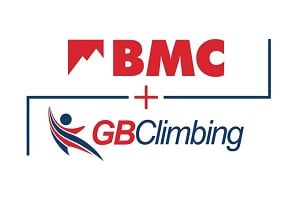
Writer, journalist and former Vice President of the BMC, Ed Douglas, reflects on the changing faces of climbing, mountaineering and ultimately our governing body ahead of the AGM on 16th June.
The Rolling Stones are touring again, which is a boggling thought. Mick Jagger first sang the line 'What a drag it is getting old' back in 1966, the year Dougal Haston climbed the Eiger Direct and I first drew breath. And here he is, still at it, although I imagine with more insight these days, if his lower back feels anything like mine. I guess there's an upside to the passage of time. Experience is useful, although memory is a fickle beast. And as you get older there's the risk your perspective goggles get welded to your face, making it increasingly difficult to see things from someone else's point of view. New stuff comes along that makes you think the world is getting better (social tolerance, the internet, bouldering competitions) while other stuff, and this is actually one of the toughest aspects of ageing, gets worse (reasoned debate, the internet, the environment).
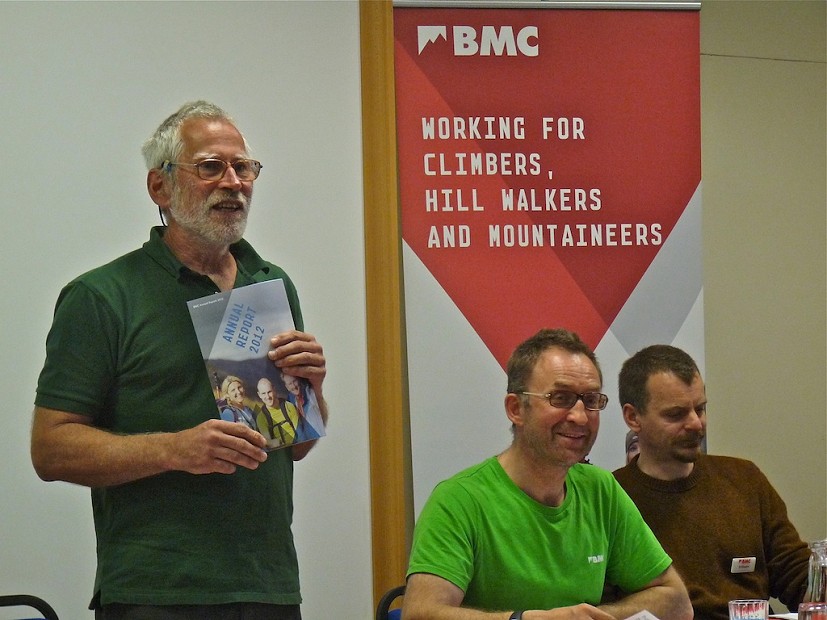
All of these observations about getting older apply when pondering the future of the British Mountaineering Council. The BMC is getting older and going through one of its regular periods of organisational transition. This one has proved longer than most and sometimes nastily personal. It continues a sequence of missteps and controversies piled up on each other: the rebranding crisis; the debate over Olympic status; the motion of no confidence; and the painful resignation of former president Rehan Siddiqui. Any organisation that had experienced such trials would be short on confidence and the consequence for the BMC has been a sense of drift while a painstaking re-examination of how it conducts itself is carried out. On the other hand, their membership continues to rise, so they must be doing something right.
If you're a member, you now have the chance to vote on how the body that represents climbers and hill walkers will conduct itself for the foreseeable future. For the first time, you can do that online. There is a small but vocal and influential group of older climbers who argue that the preferred option of the BMC will weaken the voice of members in how the organisation is run: that the recommended measures are anti-democratic. This group has been characterised by some as out of touch fogeys who resent how 'their' sport has changed and whose tactics are divisive; they in turn argue that the BMC's agenda is being set not by the needs of ordinary members but by bureaucratic interests within Sport England and the BMC itself. Some of them clearly believe the BMC is using its communications muscle to spin them as angry old men with nothing to offer younger generations.
Older members of the BMC came into climbing when the BMC was still essentially a council of clubs. The senior clubs didn't give up their automatic seats on the BMC's managing committee until 1968. There were no individual members until 1974. Climbers joined clubs at a young age, because they had to, for huts and shared transport, and to find other climbers. They grew up in that structure. Lots of people still join clubs, but they tend to do so later in life now, with their view of the world already in place. Clubs also provided the volunteer muscle that the BMC relied on to function. The best of them rose through the ranks to become president. It was a respected process. In the absence of websites and social media, the annual general meeting was an event in the calendar not to be missed, a chance to put the organisation under the spotlight. There was a feeling of shared enterprise that some of those opposing the BMC's proposal clearly feel has been lost.
Many climbers and hill walkers, in fact most of the eighty-odd thousand members of the BMC, can barely stifle a yawn in the face of this long, drawn-out antagonism. In a country facing Brexit, an underfunded NHS and increasing inequality, who cares? Some who engaged at first have subsequently been switched off the debate by the way it's been conducted: at times a bitter, personal feud. Quite a few climbers I've spoken to barely know there's a process at all. Myself, I think what's happening is interesting and revelatory of how the outdoor world is changing, but let's be honest, the very phrase 'articles of association' leaves most of us clasping our foreheads and muttering: 'I. So. Don't. Care.' So why should you?
Let me answer that with a brief diversion. Like many middle-aged climbers, I've taken up cycling. Actually, that's not true: I've always been a cyclist, but mostly engaged in mountain biking, which is like mountain walking only faster and more annoying. What I mean is that in my mid forties I bought a road bike, squeezed into some lycra and set off trundling around the countryside. I started road biking mostly because my knees hurt and I was worried about getting fat. What happened was that my already considerable thighs swelled alarmingly and rock-overs got harder.
The thing I didn't do was join a cycling organisation. Then again, not many people do. There are 2.7m cyclists who get on a bike at least once a week. Yet British Cycling has only 138,000 members and Cycling UK 67,000: that's not even one per cent. British Cycling's mission statement says it is 'suitable for all levels' but it doesn't seem that interested in the things that concern me: access and conservation of trails, broader transport policy and commuter cycling. There is actually another organisation that campaigns on such things: Cycling UK. Its home page is more worthy, like graphic tofu. I imagine that eventually I'll join because tofu's really not that bad, but it's hard not to conclude that cycling would be much better served with a united voice. Maybe that's why we're so far behind other parts of Europe in cycling infrastructure? I appreciate cycling is very diverse, but my answer to that is Chris Boardman. And anyway, the mountain world is no less diverse.
Most sports require you to join a governing body. If you want to cycle competitively in the UK, you have no choice but to join British Cycling. No one plays a rugby match without a registration card. That isn't the case with climbing outdoors or hillwalking. You just get out there. Some people who join the British Mountaineering Council only do so to take advantage of its services, or to get an instructor's ticket, but the difference in philosophy is still profound. It is, under certain circumstances, a governing body, but for almost all of us, we carry on whether it exists or not.
This is both an opportunity and a great danger for the BMC. There's no question in my mind that the people who work for it professionally and voluntarily pay close attention to what other climbers and hill walkers want, because not to do so would make it irrelevant much, much faster than other sporting bodies. (I know this because I was for three years a vice president, have occasionally worked for the organisation and have followed its progress, on and off, for over thirty years.) That is not the same thing as democracy, of course: people putting their hands up at meetings, people voting online. But it's something. The front page of the BMC website reveals a very different kind of organisation to British Cycling: more diverse and philosophically broader. That range of interests, that diversity in perspective, is for me what makes the BMC worthwhile. And if that range of interests disappears, that's when you'll know that the BMC is really in trouble.
The last time the BMC's articles of association were overhauled was in 1993, a quarter of a century ago. A generation. I was working for climbing magazines at the time and remember how profoundly the sport was changing. In fact, climbing had changed far more in the period leading up to those BMC reforms than it has since, and in ways that were fundamental to the ethos of adventure that characterises our quirky British tradition. Ten years previously there had been almost no such thing as sport climbing; bouldering was something you did without a mat. Climbing walls had gone from being not so very good and thin on the ground to being much better and all over the place. Competitions had arrived, causing intense division within the BMC, an existential crisis which now seems almost laughable.
The new structure of the BMC reflected those changing times. The astonishing legacy of the post-war climbing world was respected but there were lots of young climbers doing amazing new things that some older climbers found challenging. To keep everybody on side, the BMC became a catch-all, a bit like a sponge, keeping aspects of the old while mopping up anything new that was deemed relevant or important, as you would expect from a member-led organisation based on consensus. (Of course, sponges are prone to getting squashed out of shape when something heavy sits on them. The financial chaos that followed Rheged springs to mind.)
Many things have changed in the years since. Climbing magazines have lost influence or disappeared altogether, replaced by the frothed-up aggression of social media. The level of deep political engagement in BMC matters has faded. Local authority centres across the country have closed. The outdoors generally is more consumerist, more performance oriented and less engaged with the natural environment – much like the rest of British society, which has become more atomised. Consider this: in 2003, not so long ago, the split in the BMC between clubs and individuals was roughly 30,000 on either side. Now there are more than 50,000 individuals and the clubs are static.
As membership has boomed, the shortcomings in the BMC's organisation have become clearer. As a democratic organisation, it has never really caught fire. Mark Vallance, a former president who maintained a strong interest in the BMC until his recent death, lambasted the use of the block vote by senior clubs to control the BMC. The problem is that individual members don't seem too enthusiastic about taking up the democratic slack. The percentage of the membership electing those who make the decisions is tiny. How authority is shared between the National Council and the Executive is confusing, even to those volunteers who serve on those bodies. Numbers attending area committees are strong in some parts of the country, but not so much in others and only a small fraction of the membership.
For most members, the organisation is a service provider, not a political body that needs tending, and they don't want to get involved. I watched the recent BMC debate about the latest hoo-hah on YouTube; it was wide-ranging, sometimes thoughtful and illuminating, perhaps a bit too managed. Even so, there were very few people in the room listening, perhaps forty, less than a hundred online for the live broadcast and the YouTube replay has had thirteen hundred hits or so. The consequence of this lack of participation has, I think, been a lack of confidence at critical moments, a lack of leadership from the people who should provide it: us. And without that leadership, it's hardly surprising if full-time staff have picked up the slack, infuriating the old guard even more.
Change has to happen. The current arrangements clearly aren't working. Plus, the BMC has no choice but to revise its articles so they comply with the Companies Act (2006) and with Sport England's code of governance. The mammoth report produced by the BMC's organisational review seemed to me heavy on corporate efficiency but too light on member input. Plenty of others who engaged with the process felt the same. Since then, there has been a huge effort from all sides to reframe the new articles so BMC members continue to play a central role. That has been a rushed and intense process, and most members I suspect will be quite grateful someone else was there to do it. As a consequence of this frenzied negotiation, some of those who had previously advocated the Tier 1 option have declared themselves satisfied and will switch. Others have not.
As I said, those opposing the BMC's preferred Tier 3 option see it as bowing a knee to Sport England and reducing the role of members in the organisation. They believe the money Sport England offers, less than fifteen per cent of the BMC's budget, comes at too high a price. They argue that choosing the lighter Tier 1 option means the membership stays in control, not some unanswerable board set up by a government bureaucracy that doesn't understand the outdoors. If Tier 1 happens, then competitive climbing would need its own independent body because the BMC would almost certainly lose its status as a National Governing Body. It would also mean the training organisations, Mountain Training and NICAS, plus the Association of British Climbing Walls, all currently drawn inside the BMC's marquee, would have to deal directly with Sport England. They are doing that at the moment anyway, because of the BMC's ongoing issue with governance.
I'm not a fan of Sport England. I think the way sport is managed in this country is bonkers. (UK Sport hoses a few stars with cash while claiming this boosts participation; Sport England wrings its hands when obesity reaches levels not seen almost anywhere else in Europe.) I love climbing for all kinds of reasons, but a big one is that you're not obliged to compete with anyone else or follow a rulebook: that's one of the things that drew me in. Sport England doesn't seem genetically capable of understanding that sort of culture and so I would rather they didn't involve themselves in the BMC's direction of travel.
Even so, I think the Tier 1 route would be a mistake. It would most probably fracture a large group of people who still have more in common than they think. Like cycling, we'd end up in our own narrow little worlds, only with less influence, because there are fewer of us. Organisations like Mountain Training want to be part of the BMC and I think it's good for the outdoor world that they are in close touch with ordinary climbers and hill walkers. It's a mutually beneficial arrangement. It keeps the vision big. We don't live in silos. Young alpinists go bouldering and sport climbing. Some of them turn into instructors or guides. They don't see these activities as contradictory or damaging to each other. They like that climbing and hill walking are more inclusive than they once were. Why would anyone want to retreat from that?
'Kids are different these days,' Jagger sang in Mother's Little Helper, the song I quoted earlier. This week I've been reading about Alex Honnold and Margo Hayes campaigning for the conservation of public lands in the US. Kids today, eh? All that annoying enthusiasm. I've also been reading about the latest event in the admirable Mend Our Mountains campaign being run by the BMC this week on Mam Tor. Whatever happens to the BMC, the energy and renewal that have always existed in climbing will continue. It's part of the deal. It's why I still love it. I hope the BMC has now found the right formula to tap into all that enthusiasm. Perhaps offering the chance to vote online will in the future engage more young climbers and hill walkers. And perhaps, with a clearer sense of direction, lots of younger members will respond. Whether or not you agree, I encourage you to vote.
- Volunteer Needed For BMC Climbing Recycling Project 22 May, 2012
- Freedom Climbers by Bernadette McDonald 27 Feb, 2012
- Unjustifiable Risk? by Simon Thompson 24 Sep, 2010

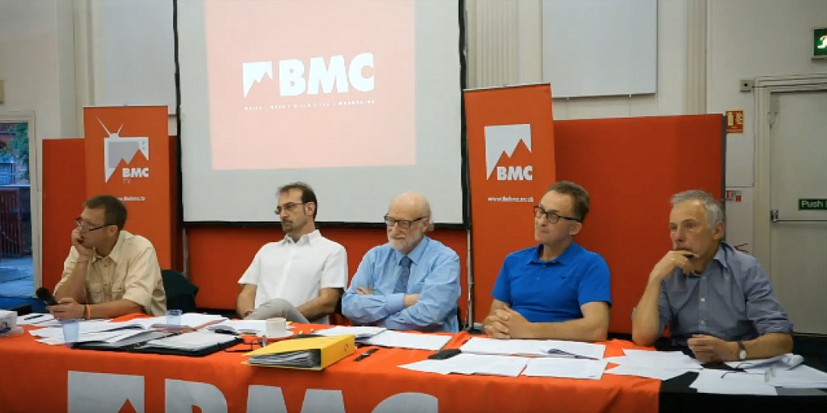
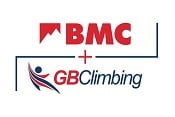


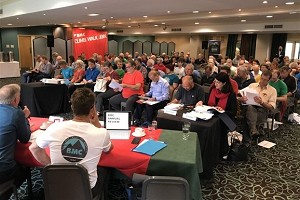
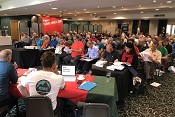




Comments
Interesting article. Given the following quote "For most members, the organisation is a service provider...", I've always wondered how many people join the BMC simply because they need rock climbing travel insurance.
Certainly a great many are 'accidental' members as a result of joining a climbing club. Some of these take an interest in the BMC, many do not.
I think it's probably also the case that most climbers, even those who are individual members, don't pay it very much attention (me included). They'll claim the discount in shops, and they may go to it when they need insurance, as you suggest. Other than that I suspect they're happy to let it carry on working in the background, without getting involved. Occasionally a local issue might prompt a larger attendance than usual at an area meeting, but even so its probably only a tiny number of local members, let alone of local climbers. The Climb UK debacle was an exception in that it attracted a lot of attention from a lot of members, but that was very unusual.
This is Ed's point. People join the BMC for various reasons but then don't take much interest in it, and least of all in the boring but necessary admin stuff. But they don't need to join at all, so unless the BMC remains relevant to them they'll simply drift away. To me, this provides a far greater assurance that members' interests will be respected than complicated constitutional structures.
Good article Ed. Much needed.
I'd make two points.
'The BMC has no choice but to revise its articles so they comply with the Companies Act (2006) and with Sport England's code of governance'. Well, no. The current Articles are NOT in breach of the Companies Act (or has the BMC been illegal for the last 25 years? :-) ) and the BMC certainly CAN elect to not comply with the Sport England Code if it so desires.
And with respect to NGB status even Sport England admit that any body can be the NGB of its 'sport' so long as the participants recognise it as such. What is at stake is the Sport England 'recognition' of NGB status. And of course a rebel organisation could tip-toe out of the shadows and steal the hearts and minds of competition climbers and claim to be an alternative NGB.
And my third point is that I don't feel like an old fuddy-duddy :-(
Turtlespit and Howard. You want to be careful. Someone will be along shortly to tell you off for calling BMC members 'plebs' :-)
Wow, the BMC have/have been in breach of a 12 year old Act for 25 years :-)